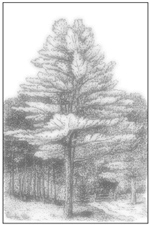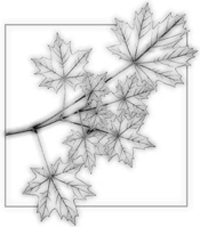After Her
Authors: Joyce Maynard


Â

Â
For Laura Gaddini Xerogeanes and Janet Gaddini Cubley,
also for Martha, and for Dana.
This is not their story, but their story inspired this one.
And in memory of Detective Robert Gaddini, Marin County Homicide
Â
Come a little closer huh . . .
Close enough to look in my eyes Sharona
âfrom “My Sharona” by Douglas Fieger and Berton Averre, #1 single by the Knack, 1979
Â
Contents
Â
A little over thirty years ago, on a June day just before sunsetâalone on a mountain in Marin County, Californiaâa man came toward me with a length of piano wire stretched between his hands, and the intention of ending my days. I was fourteen years old, and many others had already died at his hands. I carry the knowledge of what it is to look into a man's eyes and believe his face is the last thing I will ever see.
I have my sister to thank that I am here to tell what happened that day. Two times, it was my sister who saved me, though I was not able to do the same for my sister.
This is our story.
N
OTHING MUCH EVER HAPPENED ON
the mountain where we lived, growing up, and we didn't get cable. We were always hoping for a little excitement. So my sister and I made up situations. All we had was time.
One day we decided to see what it felt like to be dead.
If a person's dead, they don't feel anything, Patty said. This was Patty for you.
I had a red sweatshirt, the kind with a zipper up the front and a hood and pockets to keep gum. I spread it on a patch of grass on the hillside behind our house, with the sleeves stretched out as if they were a person who'd been run over by a truckâthe hood off in a different direction, so as much of the red part showed as possible, like a pool of blood.
Lie there, I told my sister, pointing to a spot in the middle, over the zipper part.
She might disagree, but Patty nearly always did what I told her. If she had questions, she kept them to herself.
I lay down next to her. Close enough so plenty of the red part showed on either side of our bodies.
Now what?
Don't move. Don't let your chest go up and down when you breathe.
Some people would have asked for an explanation, but not Patty. Letting her find out in her own time was part of my idea, and she understood this.
For a long time nothing happened. It was hot that day, but we just lay there.
My nose itches, she said.
Never mind, I told her. Just think about something else. Something interesting.
For me at the time, that would mean Peter Frampton, or the jeans I'd seen at the mall a couple of weeks earlier, that were perfect in every way except the price. And the notebooks I wrote in, where I made up stories I'd read to my sister, that she said were better than Nancy Drew.
For Patty it would be Larry Bird executing a hook shot. Or some dog she liked. Which would be any dog that ever lived.
Did you notice that cloud? she said. It's shaped like a dachshund.
Quiet.
Who knew how much time passed. Ten minutes? An hour, possibly. Then I spotted it: a vulture, circling above our heads. First one, then two more. They were high up still, but it was plain from where they'd positioned themselves that we were the target. The place they were circling was directly over the spot where we lay.
What now? Patty asked me.
Shush. Be still.
Two more birds joined the others. The circle was getting tighter, as if they were zeroing in. They were coming lower too, closer to our bodies.
What if they try to peck our eyes out?
No answer from me. Getting the vultures to spot us was the whole point. My sister should know this, and basically did.
The vultures were swooping lower now, dive-bombing, making this terrible shrieking sound. They were closing in around us. Shrieking not so much at Patty and me, from the sound of it, as at one another. They were fighting over who would get to eat our eyeballs, probably.
Then came one final shriek, not from one of the nearest birds, but one we hadn't noticed until now, a little farther off but zeroing in. He sailed down toward us, body like an arrow, beak and talons aimed at our faces.
I didn't have to tell my sister what to do. We jumped up screaming, running down the mountain toward our house. No time to claim my sweatshirt evenâthough later, when the birds were gone, we'd return for it, out of breath and holding each other, screaming. A person could scream as loud as she wanted on the mountain, and it felt good. We were always looking for excuses to scream.
L
ATER AGAIN, WHEN WE COULD
catch our breath, we lay in our yard going over it all.
I could feel the feathers brush against my arm, I said.
I could feel the wind their wings made when they flapped, blowing over my face, she told me. Like hot breath.
Now you know what it's like being dead, I told her.
Or not dead yet, just about to be.
T
HIS IS HOW
I
REMEMBER
it. I could be wrong. I had a big imagination when I was young. I was good at making up stories, and my stories were so good, I even believed them myself sometimes.
And I was always looking for excitement, until I found some.
Â

T
he town where my sister and I grew up lay in the shadow of Mount Tamalpais, not far north of San Francisco. The aging housing development where we lived, on Morning Glory Court, sat just off an exit of Highway 101, eight miles north of the Golden Gate Bridge. Buses ran from where we lived to San Franciscoâthe bridge marking the entrance to that other world, though we also knew people came there to jump. But for us, the city might as well have been the moon.
Our father had grown up in the cityâNorth Beach, home of the real red sauce, he told us. This was where the hippies had come for the Summer of Love and where Janis Joplin had once walked the streets of the Haight, and cable cars ran, and that crazy Lombard Street snaked past rows of pretty pastel Victorian houses, and where another PattyâHearstâhad walked into a Hibernia Bank one day, a few years back, carrying an M1 carbine as one of the Symbionese Liberation Army.
Later, rock stars started buying houses on the other side of the highway from where our house sat, but back in those days, it wasn't a fashionable place yet. The day would come when people built high walls around their property and posted signs alerting would-be burglars to the existence of their security systems. But those were still trusting times. Our yards flowed into one another, free of hedges or fences, so girls like us could run from one end of the street to the other without the soles of their Keds once touching asphalt. People moved easily among their neighbors, and few locked their doors.
Our house, number 17, was the smallest on the streetâtwo dark little bedrooms, a low-ceilinged living room, and a kitchen the previous owners had decorated with green Formica and matching avocado-green appliances, none of which could be counted on to function reliably. The living room was covered in wood paneling, an effect meant to make the place seem cozy, perhaps, though one that hadn't succeeded.
Our parents had bought the house in 1968, when I was two years old, shortly after my sister's birthâthe best they could manage on a policeman's salary. My mother said Marin County was a good place for raising children, though our father worked in the city at the timeâmeaning San Francisco. He was a beat cop then, not yet a detective, and knowing him, he would have liked it that his work took him a ways from home, over that red bridge he loved. It was probably better that way, for a man like him at least, to be off on his own, with the three of us tucked away in that little bungalow while he was off saving people.
These days, nobody could think of building low-income housing in a spot like the one where our house was situated. The land that made up our development would be reserved for six-thousand-square-foot mansions with swimming pools and yards with outdoor kitchens and expensive patio furniture. There would be three-car garages, and the cars in them would be of European design.
But whenever it was (the 1940s probably, after the war) that the houses were constructed on Morning Glory Court and the neighboring streets (Bluebell, Honeysuckle, Daffodil, and my favoriteânamed for a contractor's wife probablyâMuriel Lane), a premium had not yet been placed on proximity to open land and views. It was possible back then to have as little money as our family did and still find yourself in a house that backed up on a few thousand acres of open space. So that whole mountain was our playground. Mine and my sister's.
For the first five years of her life, Patty barely spoke, except to me. Not that she couldn't talk. She knew words. She had no speech impediment. She had strong opinions about a lot of things, in factânot only dogs, and basketball, but also (speaking now of her dislikes) foods that were red, other than marinara sauce, clothes whose labels rubbed her neck, all dresses. She developed, early on, a hearty sense of humor, particularly concerning anything to do with body parts or bathroom activities. Burping never ceased to amuse her. A fartâparticularly coming from a well-dressed woman or a man in a suitâsent her right over the top.
But if someone asked her a questionâand this included other children besides me, her kindergarten teacher, and our own parentsâshe said nothing, unless I was there, in which case she'd whisper her response in my ear, leaving it to me to convey to the outside worldâthe world beyond the unit that consisted of the two of usâwhat her answer might be. Young as I was, I didn't know for a long time that other five-year-old girls had a lot to say. I didn't know this wasn't how things went with everybody's little sister.
When we'd go to the bank with our mother, and the teller would ask what flavor of lollipop she'd like, Patty whispered her choice in my ear and I would speak it for her.
Green.
She ignored it when kids called her Bucktooth, because of her overbite, and on our street, if a boy came up and wanted her toy, she'd hand it to him rather than protest, though if any of these boys had teased me (about my outgrown clothes, my inability to hit a ball in our occasional neighborhood games), she would confront the offender (but silently) with one of our jujitsu moves, learned from our father. Once, when a boy took the seat she'd saved for me at a puppet show our mother had taken us to at the library, she jammed her elbow in his stomach and kicked him for good measure before magnificently sweeping me into the place next to her. All without words.
A person could have thought she was shy, but when we were in our room, Patty's true nature revealed itself, a secret entrusted only to me. This was when she'd break into her panty dance, or imitations of her teacher, Mrs. Eggert, preparing the class for inspection of their bottoms by the school nurse during an outbreak of ringworm, or her particular favorite game of pretending to be a puppy, down on her hands and knees, with her tongue out and her butt wagging an imaginary tail.
My sister could be wild, leaping from the top bunk onto a pile of pillows she'd built for herself that proved to offer insufficient cushion for her landing. I saw the look on her face when she hit the floor, and I knew it had to hurt, but she was never one for crying.
Sometimes speaking for Patty might require nothing more from me than explaining she wanted mustard on her sandwich, or what flavor of ice cream she preferred. She'd let me know in a surprisingly husky voice, so low only I could hear. I'd give voice to her words.
“Patty isn't that interested in dolls,” I told our mother when Patty opened her Christmas present of a Tiny Tears with a layette. “She says this one is really cute and she thinks I'd probably like it. But actually, what Patty would like is a basketball or a baby pig.”
What she really wanted was a dog, of course. Our mother had ruled that one out.
But here was an interesting thing: as little as Patty said in those days, and as quiet as she remained even later, she had the biggest voice. Not high and shrill either, like some girls', but surprisingly low and resonant, and it carried, to the point where sometimes our mother saidâtimes we'd be out riding bikes and having one of our discussionsâshe'd know Patty was coming home five minutes before she got there. According to our parents, she had been famous for this even as a baby.
“Rachel sounds like a normal kid,” our father said, referring to me. “But when Patty lets out a yell, they can probably hear it all the way to Eureka. It's a miracle I still have my eardrums.”
A
PICTURE OF MY CHILDHOOD
does not exist for me (I'm speaking of my memory here, not photograph albums, which our mother never got around to making) that doesn't feature Patty in it. Nearly always when an image comes to me of the two of us, we have our arms around each other, or her head is on my shoulder, or (because she grew tall, young) mine on hers. If the picture was taken after she was six or seven, it's a safe bet Patty's mouth will be closed over her teeth. But where I am likely to look worried in the picture, my sister will be smiling.
The term
depression
wasn't much used then, but I think we both sensed, even early on, that our mother was fragileâthat no space or energy existed to deal with more than she already had on her plate. This was the period when our father had gone to night school, working on getting the master's degree that was his ticket to the rank of detective. From the beginning, when he first joined the police force, his goal had been to work in homicide. He had no interest in parking tickets or petty crimes and robberies. Maybe he'd seen some character of a detective in the moviesâWilliam Holden, Humphrey Bogart, Robert Mitchumâand the image appealed to him. That would be like him: to model himself on a movie hero, only he'd be one in real life.
So he was working double time at that pointâdays on the job in San Francisco, nights at schoolâwhile our mother stayed home with Patty and me. No doubt the hours were tough for him, but it was glamorous too, learning about psychology and forensics, while our mother stayed home with the babies. And knowing our father, he wouldn't have come running home to her after class was over either. There were probably a few female students at the police academy. There would certainly have been waitresses at the clubs he went to after.
“Your father always liked making women happy,” my mother told me once. No particular harshness in her voice when she said this, just weary resignation, a statement of fact, and I knew it anyway. Maybe, in his odd way, I could see him feeling a responsibility to spread the happiness around. Many women. Made very happy. (For a while, anyway.)
The problem between our parents, maybe, was that of all the women, our mother may have been the only one who appeared immune to our father's romantic tactics, and for a man accustomed to charming the female population of the entire San Francisco Bay Area, this must have taken the wind right out of his sails. Our mother was smarter than almost anyone, for starters. She was also coolly resistant to the seduction of flattery. Honesty she liked. Sweet talk got you no place once you'd committed the offense of betrayal. Lie once and you lost her.
A scene comes to me from when we were very young: my father walking in the house, home from work, and twirling our mother around the kitchen, untying her apron and wrapping his hands around her waist to kiss her hard on the mouth. (Do I remember this? Or have I made up the picture, wanting it to have been this way once?) He pressed her close against his chest.
“Nice cologne there,” she said, pulling away. “New scent?”
She hardly looked up, just tied her apron back again with this weary look that seemed to say,
Don't waste your time
.
After a while he didn't.

